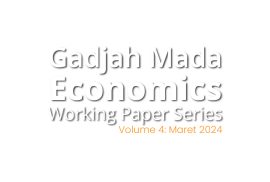Abstract
This study aims to determine the effect of internet usage on entrepreneurship in Indonesia. Probit regression is used in this study because the dependent variable is a binary category that indicates a family’s involvement in entrepreneurial activities. The data used in this study is secondary data sourced from the Survei Sosial Ekonomi Nasional (Susenas) in 2020 and 2021. The results show that internet usage increases the probability of entrepreneurship in Indonesia by 7.4 percentage points and is statistically significant. Further analysis shows that the effect of the internet is greater for necessity-based entrepreneurship and only affects rural areas in Indonesia. This research may have implications to add to the literature for entrepreneurship development in Indonesia to compete globally.

